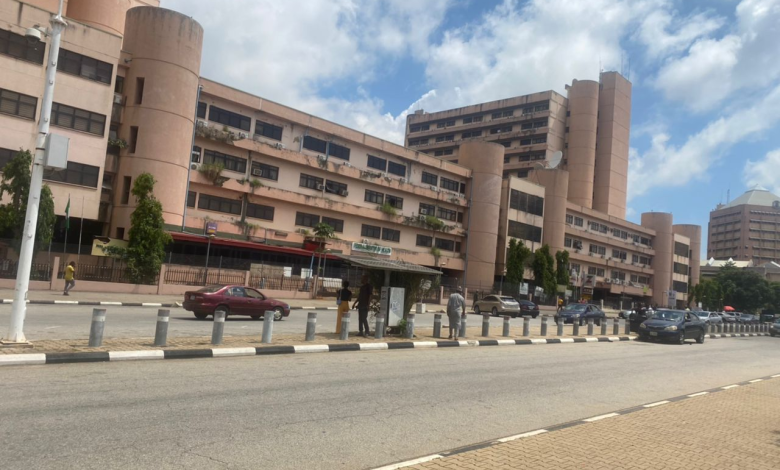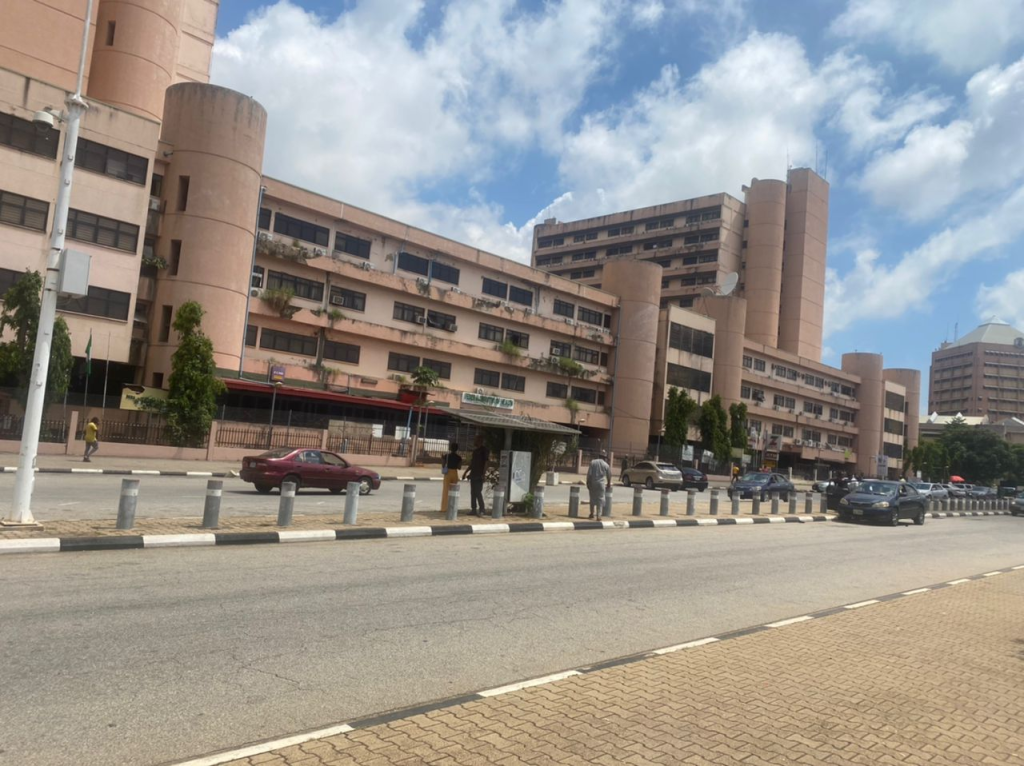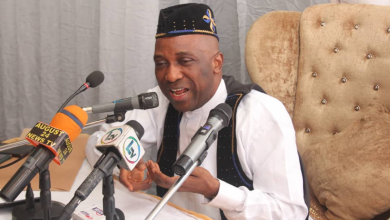Lagos, Katsina, Sokoto workers shun NLC, strike grounds Abuja, states


Workers in Lagos, Sokoto, and Katsina states rejected the labor action, but the Nigeria Labour Congress called a strike to protest the Federal Government’s failure to provide palliatives after the removal of fuel subsidies on Tuesday, ground economic and commercial activities in several states.
The NLC ordered Delta, Bayelsa, and Ogun to cease operations while they attended to their clients; however, banks and other financial institutions, the civil service in the three states, and these entities did not comply.
However, the two-day strike, which started on Tuesday, shut down banks, ministries, agencies, and departments to the general public, paralyzing activity in the Federal Capital Territory and other states.
Additionally, employees of several power companies joined the strike on Tuesday under the auspices of the National Union of Electricity Employees, causing nationwide disruptions in the country’s electrical supply. However, power distribution firms apologized to their clients for the inconvenience.
The two-day warning strike, according to the NLC leadership, was a prelude to a complete shutdown that would begin in 21 days.
The choice was made at the conclusion of last Friday’s National Executive Council meeting.
According to a statement issued by the labor center and co-signed by its secretary, Emmanuel Ugboaja, and national president, Joe Ajaero, the decision was made because the Bola Tinubu administration failed to engage organized labor in talks or seek input on ways to mitigate the impact of the removal of Premium Motor Spirit, also known as gasoline, subsidies on the general public.
The Federal Government attempted to end the strike on Monday, but it was unsuccessful when the leaders of the NLC failed to show up for a meeting with Mallam Mohammed Idiris, the Minister of Information, and Simeon Lalong, the Minister of Labor.
Visits to multiple bank branches on Lagos Island revealed that the members of the National Union of Banks, Insurance and Financial Institutions Employees did not participate in the industrial action, despite the union’s declaration that its members would join the strike owing to the harsh economic conditions in the nation.
Bank employees
Customers were served by First Bank Plc branches, which included the company’s main office, Wema Bank, Polaris Bank, and a Union Bank branch.
Public access was available to the First Bank headquarters and its Abibu Oki branch located along Marina.
Customers were first barred from entering the banking hall by a security officer at a First Bank branch on Customs Street, Lagos Island, which is located across from the Central Bank of Nigeria’s Lagos office. The guard claimed, “We are not operating because of the strike.”
He went inside the hall and came out again to let the clients in, but they insisted on finishing their purchases.
A bank employee at the Polaris bank branch on Broad Street stated that they would continue to work until they received instructions on the strike.
We are not on strike, declared the bank employee who did not want his name to appear in print. We continue to work till they tell us to head home.
Similar to the Union Bank branch at Tinubu Square, the Wema Bank branch on Broad Street also continued to operate without any interruptions.
Similar to their bank colleagues, the aviation staff at Lagos Airport avoided the walkout, with business as usual continuing at the country’s premier airport.
The aviation union stated that it would be inconsiderate to impose downtime at this time because officials from the International Civil Aviation Authority and a United Nations body were scheduled to arrive in Nigeria to examine the country’s aviation industry.
“We will not participate 100% because of the ongoing International Civil Aviation Organization audit,” stated Abdulrazak Saidu, general secretary of the Association of Nigerian Aviation Professionals. We informed the ICAO of this during the most recent NLC meeting because we cannot afford to let Nigeria suffer as a result of this (the strike).
But when the Nigerian Maritime Workers Union closed the ports, the NLC decision was properly enforced at the Lagos Ports.
According to The PUNCH, the MWUN announced its support for the two-day strike in a letter on Monday that was signed by the organization’s head of media, John Ikemefuna, and was captioned “Compliance to the Nigerian Labour Congress directive on a nationwide two-day warning strike.”
On Tuesday, however, our correspondent learned that all of the gates to Tincan Island Ports and Apapa were locked.
Additionally, the Mile 2 expressway was closed because businesses refused to transport commuters, which caused problems in a few Apapa area offices.
The National Deputy President of the National Association of Government Approved Freight Forwarders, Nnadi Ugochukwu, provided an update on the strike. She stated that some containers that were cleared early on Tuesday morning were unable to exit the ports because Tincan Island Port’s main gate had been locked.
Mr. Frank Obiejesi, a former secretary of the Association of Nigerian Licensed Customs Agents’ Apapa Chapter, also spoke, stating that the Apapa ports were closed and had no activity going on.
However, when our correspondent visited the Lagos State secretariat in Alausa on Tuesday, regular daily operations were underway.
The PUNCH was informed by a secretariat officer, who spoke on the condition of anonymity, that state employees had no justification for participating in the strike.
Civil servants in Lagos
“The state administration had already completed the majority of the items that the NLC is requesting,” he stated, “even before the labor union started its agitation.
For instance, the NLC is requesting that worker salaries be increased. This was done by Lagos State long before it was demanded.
“The state government has also met the need for palliatives. In addition to providing buses to transport workers to and from work, the governor suspended the distribution of food palliatives on Sunday. Bus rates have been lowered by fifty percent.
Therefore, why should state employees participate in the strike? It makes no sense to participate in the strike.
With no further explanation, a second civil official who remained anonymous remarked, “We don’t have any reason to join the strike.”
When contacted, Mrs. Agnes Sessi, the Chairman of the NLC’s Lagos Chapter, stated that the strike included union employees working in the government service.
“Our civil service members participated in the walkout. The people you observed might have been TUC members or members of management staff.
“The TUC is not involved in this conflict.”
Most government employees in Sokoto chose to work through the strike.
A correspondent who kept an eye on compliance levels saw that nearly every bank in the city opened for business.
A visit to the state’s Federal Secretariat verified that employees were present in their workplaces.
In addition, the state employees went back to work at the secretariats of Gingiya and Usmanu Farouk.




